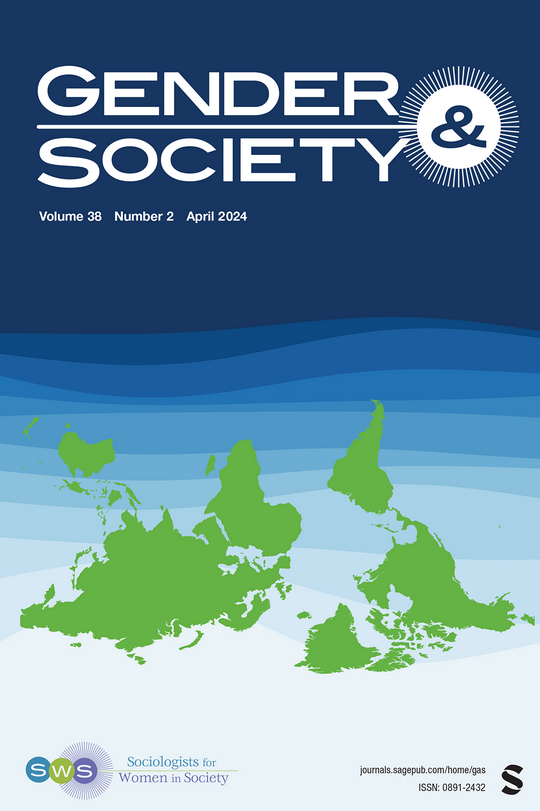Gender Segregation in Civic Life: Women’s and Men’s Involvement in Voluntary Associations
IF 3.4
1区 社会学
Q1 SOCIOLOGY
引用次数: 0
Abstract
The pervasive persistence of gender segregation has been documented in a myriad of social settings, implying that women and men primarily encounter peers of their own gender in daily life. While voluntary associations are often praised for their ability to bridge other social divides, previous research indicates substantive gender disparities in voluntary involvement. Yet we still know relatively little about the extent and origins of gender segregation in civic life. In this article, we study gender homophily in voluntary involvement and examine how structural features of friendship networks and traditional gender norms bring about gender segregation. Employing data from a German panel study (SC6-NEPS), we analyze cross-sectional patterns of gender segregation and run multinomial and binary logistic regressions to model joining and quitting transitions. Our results indicate substantive gender segregation across and within types of voluntary associations. The overall gender segregation is driven by homophilous transitions into associational contexts, not by selective quitting decisions. Gender-segregated friendship networks partially explain the tendency to join organizations dominated by one’s own gender. Traditional gender norms are associated with more homophilous joining transitions among men, but not among women. Overall, these findings imply that civic life perpetuates the structural significance of gender.公民生活中的性别隔离:妇女和男子参与志愿协会
性别隔离的普遍存在已经记录在无数的社会环境中,这意味着女性和男性在日常生活中主要遇到的是与自己性别相同的同龄人。虽然志愿组织经常因其弥合其他社会鸿沟的能力而受到赞扬,但先前的研究表明,在志愿参与方面存在实质性的性别差异。然而,对于公民生活中性别隔离的程度和起源,我们仍然知之甚少。在本文中,我们研究了自愿参与中的性别同一性,并考察了友谊网络的结构特征和传统性别规范如何导致性别隔离。采用来自德国面板研究(SC6-NEPS)的数据,我们分析了性别隔离的横截面模式,并运行多项和二元逻辑回归来模拟加入和退出过渡。我们的研究结果表明,在各种志愿协会之间和内部存在实质性的性别隔离。总体上的性别隔离是由同性恋过渡到联合环境所驱动的,而不是由选择性的退出决定所驱动的。性别隔离的友谊网络部分解释了人们加入由自己性别主导的组织的倾向。传统的性别规范与男性中更多的同性恋结合转变有关,但与女性无关。总的来说,这些发现表明,公民生活延续了性别的结构性意义。
本文章由计算机程序翻译,如有差异,请以英文原文为准。
求助全文
约1分钟内获得全文
求助全文
来源期刊

Gender & Society
Multiple-
CiteScore
9.70
自引率
3.60%
发文量
78
期刊介绍:
Gender & Society promotes feminist scholarship and the social scientific study of gender. Gender & Society publishes theoretically engaged and methodologically rigorous articles that make original contributions to gender theory. The journal takes a multidisciplinary, intersectional, and global approach to gender analyses.
 求助内容:
求助内容: 应助结果提醒方式:
应助结果提醒方式:


